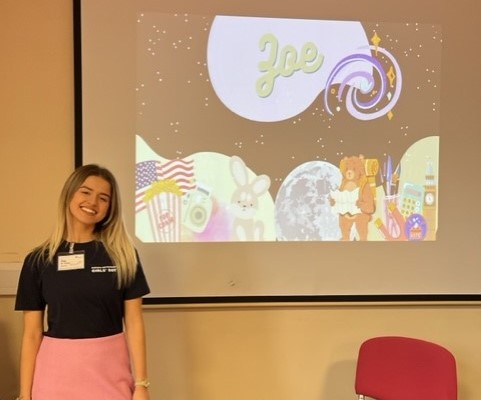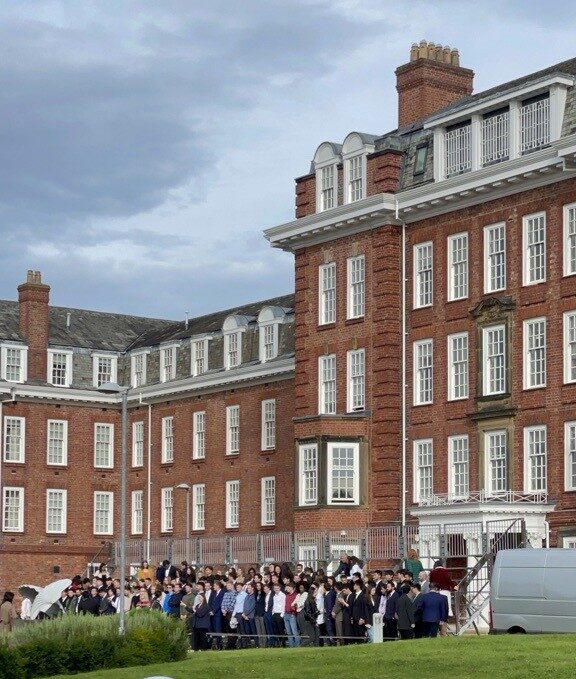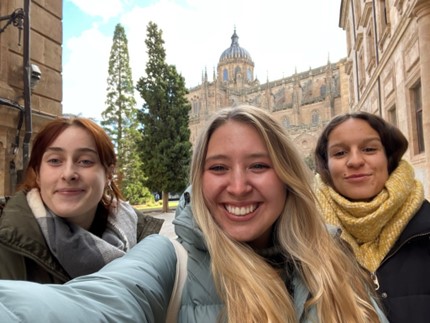My PhD
Did you hear the one about the native Brit who defined Spanish humour? Welcome to my thesis, completed in December 2021 at Durham University: ‘Side-Splitting: Humour and National Identity in Contemporary Spanish Cinema (1970-2020)’.
Over 3½ years at Durham, funded by AHRC Northern Bridge, my project examined how popular film comedies have satirised political anxieties over the past half-century, tracing Spain’s (ongoing) transitions from dictatorship to democracy following the death of Francisco Franco in 1975. If laughter is a state of communication – for Descartes, ‘that inarticulate and explosive cry’ – then… what does it say?
Initial developments
My curiosity for this thesis was first piqued during my faculty-funded MA by Research at Durham, where, examining humour in the postwar novel under Franco (1940s-1950s), I audited some of Santiago Fouz Hernández’s lectures for the module ‘Contemporary Spanish Cinema’. A natural progression following this Masters, I realised, would be to discuss the enduring impacts of comedy within the democratic, post-Franco period, and a key filmmaker would be Bigas Luna, the renowned auteur of the comedic ‘Iberian Trilogy’ (1992-1995) who kickstarted the careers of Penélope Cruz, Javier Bardem, and Jordi Mollà.
Devouring Professor Fouz Hernández’s extensive work on this director, particularly regarding the themes of gender and the body, I decided to plough a related yet distinct furrow: funniness and comedy. This is a near-ubiquitous feature of Spanish cinema yet one that, until now, had remained largely understudied within existing scholarship, and our collaboration proved very fruitful indeed.
I eagerly applied for AHRC Northern Bridge funding, and, having secured the position, I started my PhD studies under Fouz and Dr Mike Thompson’s supervision. Beginning with a bang, I started to develop a teaching profile right from the outset by covering the occasional seminar on that very module (‘Contemporary Spanish Cinema’) with first-year Undergraduates.
Moreover, as the contours of my thesis gradually took shape, I undertook some part-time work on the ‘Bigas Luna Tribute’, assisting my supervisor with the analysis of surveys, reviews, feedback, and audience questionnaires from the international series of events. Through this experience, I gained a deeper understanding of the reception of Bigas Luna from one country to the next, which fed directly into my completed research on how humour might help or hinder nation-building after conflict.
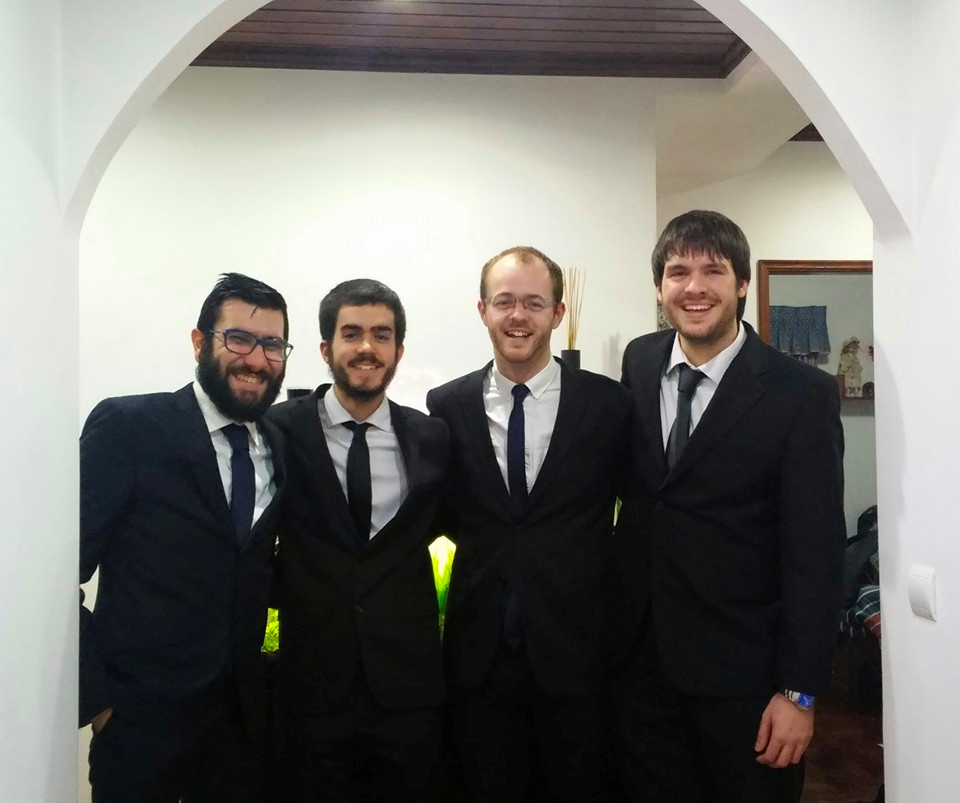
Bigas Luna’s influence
Indeed, these insights would stimulate the crux of my argument in Chapters 3 and 4, analysing how Bigas’ self-consciously ultra-‘Spanish’ films, replete with irony and postmodern pastiche, simultaneously promote, dismantle, and replenish machismo, parodying stale sayings and rubber-stamped cliches but, in so doing, becoming themselves paradigmatic, pedagogically-expedient ‘Spanishness’ for international viewers – almost the ‘Spanish film(s)’ par excellence, taught on copious secondary-school and university syllabi.
Moreover, these shared research interests on Bigas Luna, and the Bigas Luna Tribute, inspired two back-to-back industry placements, fully funded by the AHRC. In 2019 I took a brief break from the PhD to work at the London Spanish Film Festival and the British Comedy Guide, two London-based institutions geared towards the dissemination of (trans)national film.
Interrogating the intricacies of comedic filmmaking at intriguing political crossroads, I formulated detailed press-releases and brochures, sat on judging-panels, wrote copious film-summaries, introduced works onstage in both languages, interviewed several filmmakers in public Q&As, chaperoned VIPs (screenwriters, filmmakers, actors), and co-led event days.
These experiences drove an understanding of Bigas Luna as ironically more representative of Spain, and ‘Spanish cinema’ as a concept, than almost any other cultural artefact. As my PhD concluded, when the Iberian Trilogy play-acts its own stereotypes to (re)construct nationhood, parody becomes paragon.
As new stereotypes (transgressive sexuality, gastronomic excess, ungovernable desire) replace old (gypsies, flamenco dancers, bullfighting), the picture remains precarious, for irony rejects earnestness about anything at all, threatening cyclical meaninglessness. Spain’s identity remains, still, very much up for grabs.
In a nutshell, if humour constructs character – in Simon Critchley’s terms, building ethos but also ethnos – then it can do this proudly but also sceptically, showing not what Spain could or ought to be, but what it really is – even if we’d rather forget.
Dissemination of my work
In May 2021 I presented my thesis (in Spanish) for Pleibéricos, an online platform of interviews wherein Iberian Studies scholars present their books, journals, or edited collections, co-led by my supervisor and Esther Gimeno Ugalde (University of Vienna). It can be seen here: https://www.instagram.com/tv/CP0Y72JDptd/.
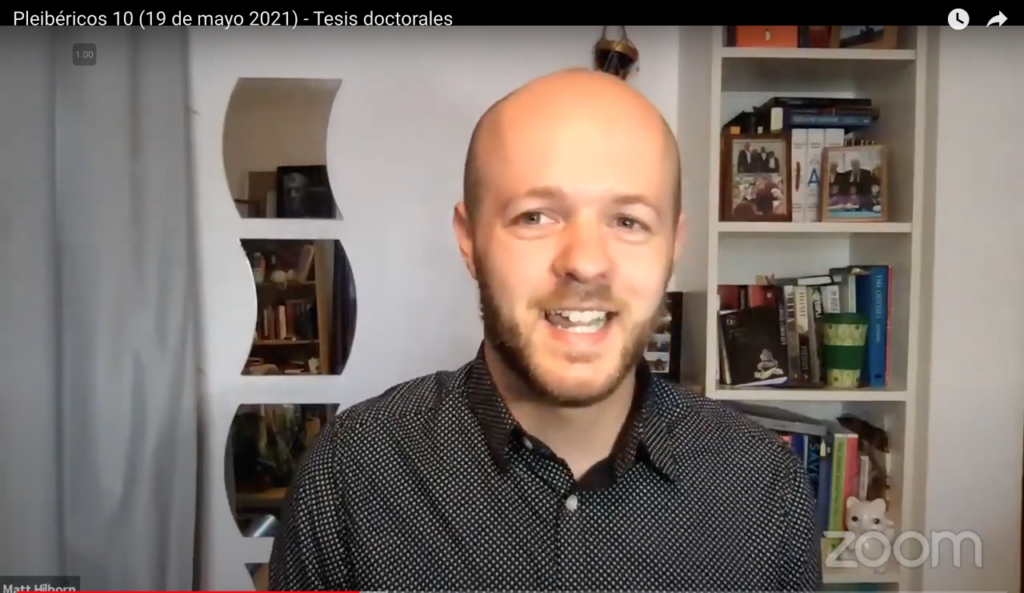
My first peer-reviewed article on Spanish humour has already been published by Bulletin of Hispanic Studies (https://www.tandfonline.com/doi/full/10.1080/14753820.2021.2020004), and further articles are close at hand. Watch this space!
I am immensely grateful to the AHRC and to MLAC for believing in this research right from the outset, meeting every Training Need with aplomb, and empowering me to find my writing voice.
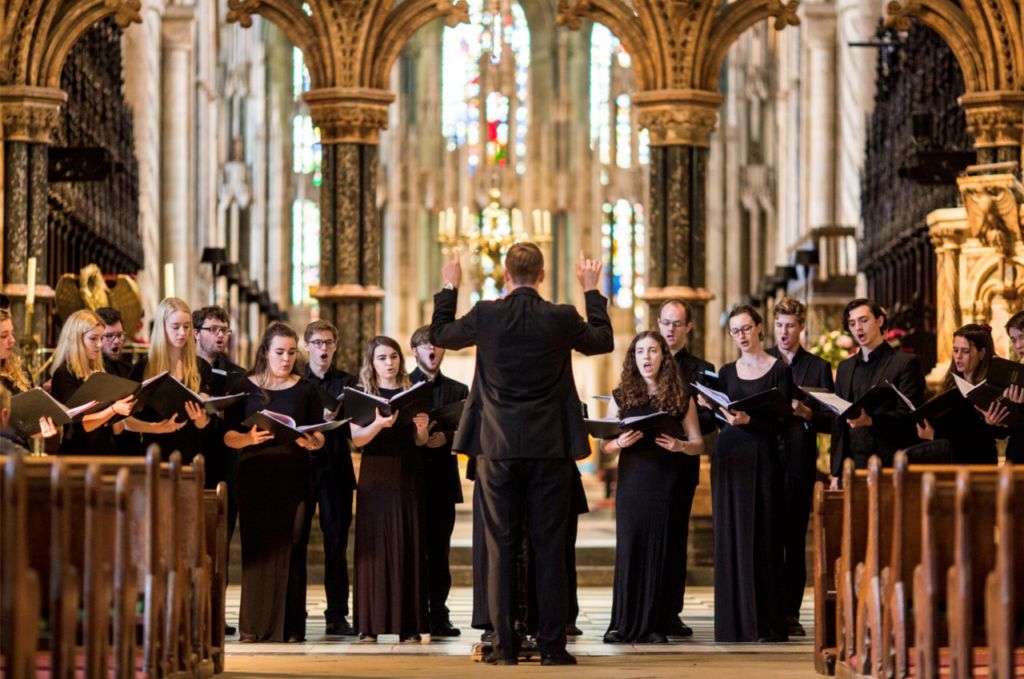
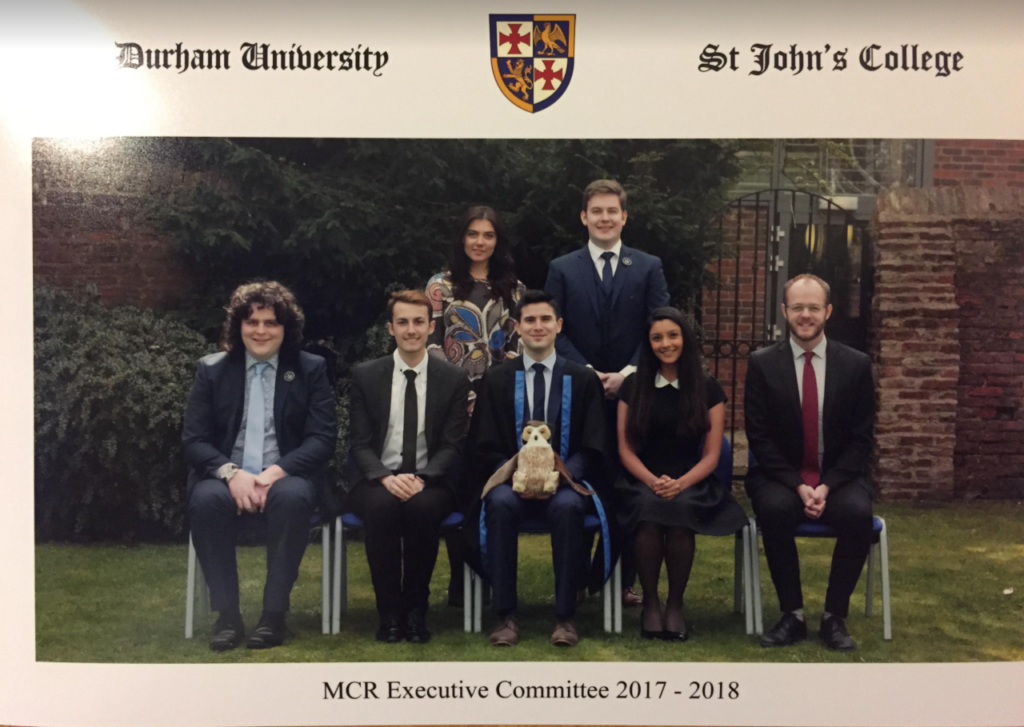
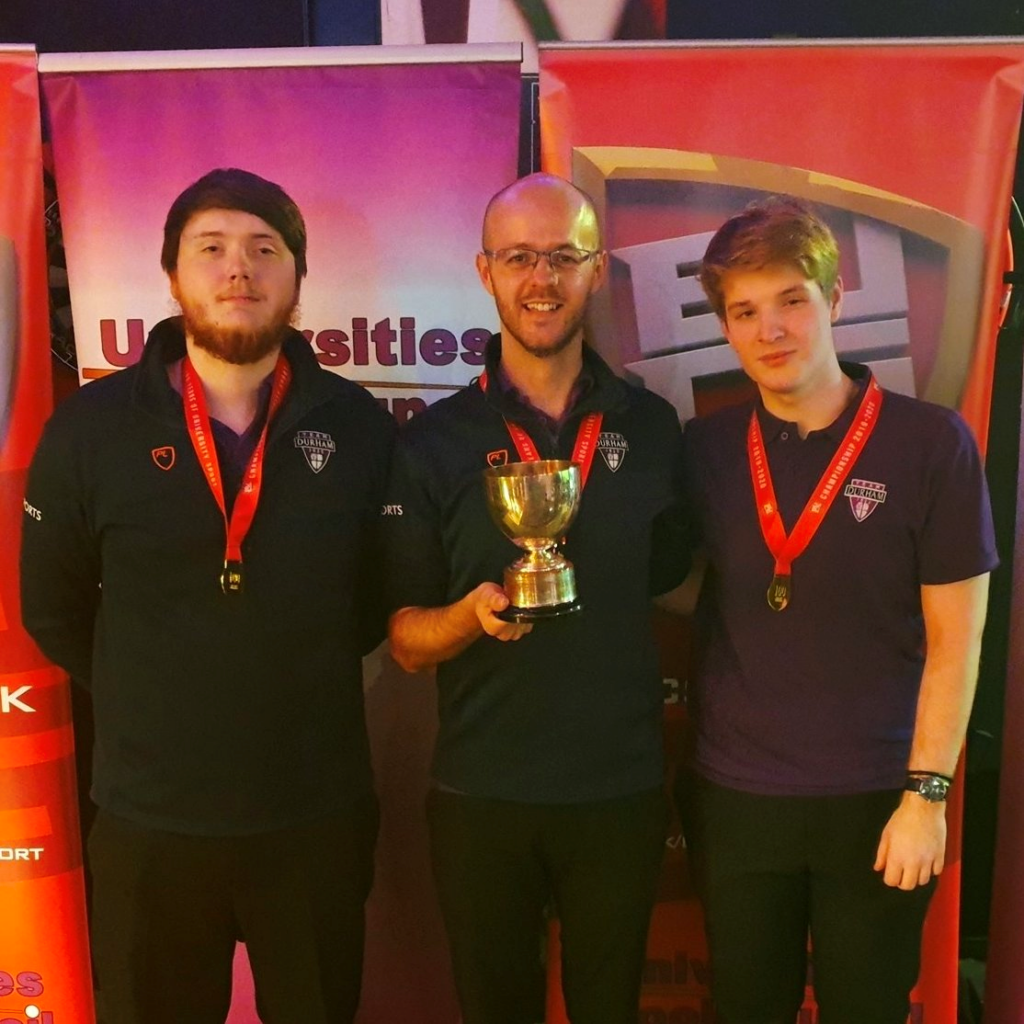
Discover more
For more about the Bigas Luna Tribute project, please visit the website www.bigaslunatribute.info or follow @bigaslunahomage on Twitter and bigaslunatribute on Instagram.
The project also includes a Bigas Luna podcast (in Spanish) available here.

Dr. Matthew Hilborn
Dr. Matthew Hilborn undertook an AHRC-funded PhD (Northern Bridge) at St. John's College, Durham University from 2017-2021, passing his Viva in December 2021 with a thesis entitled 'Side-Splitting: Humour and National Identity in Contemporary Spanish Cinema'. He is currently working as an academic editor and translator for bilingual service www.edita.us, as well as teaching Spanish and Debating in a range of UK secondary schools, but his dream is to pursue a career in academia.



